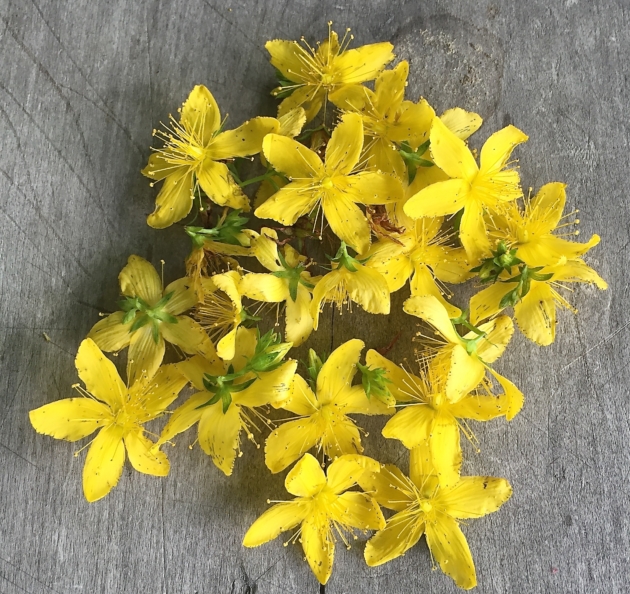only what you need
The time draws nigh for collecting herbs for drying and dyeing. Whilst reading Robin Wall Kimmerer’s thought-provoking book, Braiding Sweet Grass, I came across these guidelines for the Honorable Harvest.
Know the ways of the ones who take care of you, so that you may
take care of them.
Introduce yourself. Be accountable as the one who comes asking for life.
Ask permission before taking. Abide by the answer.
Never take the first. Never take the last.
Take only what you need.
Take only that which is given.
Never take more than half. Leave some for others.
Harvest in a way that minimizes harm.
Use it respectfully. Never waste what you have taken.
Share.
Give thanks for what you have been given.
Give a gift, in reciprocity for what you have taken.
Sustain the ones who sustain you and the earth will last forever.
So this morning, prior to gathering St John’s Wort, I sat with the plant and thanked it for cropping up in our yard and explained that I required just a few more flowers for my oil infusion. I spoke with Calendula, introducing myself as the one who planted the seeds and congratulating the plant for blooming under the hot summer sky. I took only what I needed for future remedies, thanked them both and went on my way.

The fields are about to burst forth in a bounty of golden rod. One can bet that the bumblebees and honeybees will find the ochre-topped plants before I do. Often, there are others—insects and birds—that depend on the nectar, pollen and seeds found in some of the plants that I forage for, such as the lovely white and red clover dotting our lawn. Whilst I do not use the white clover, I do harvest some of the red clover to dry and use later in the winter. We leave as much white clover as possible for the honeybees, and we suggest that others do the same. If you doubt that honeybees utilize the clover, go outside, find a clump and just stand there. Guaranteed a bee or two will buzz by you.
Robin Wall Kimmerer, Braiding Sweet Grass: indigenous wisdom, scientific knowledge and the teachings of plants, (Milkweed Editions, 2013), pg. 183.